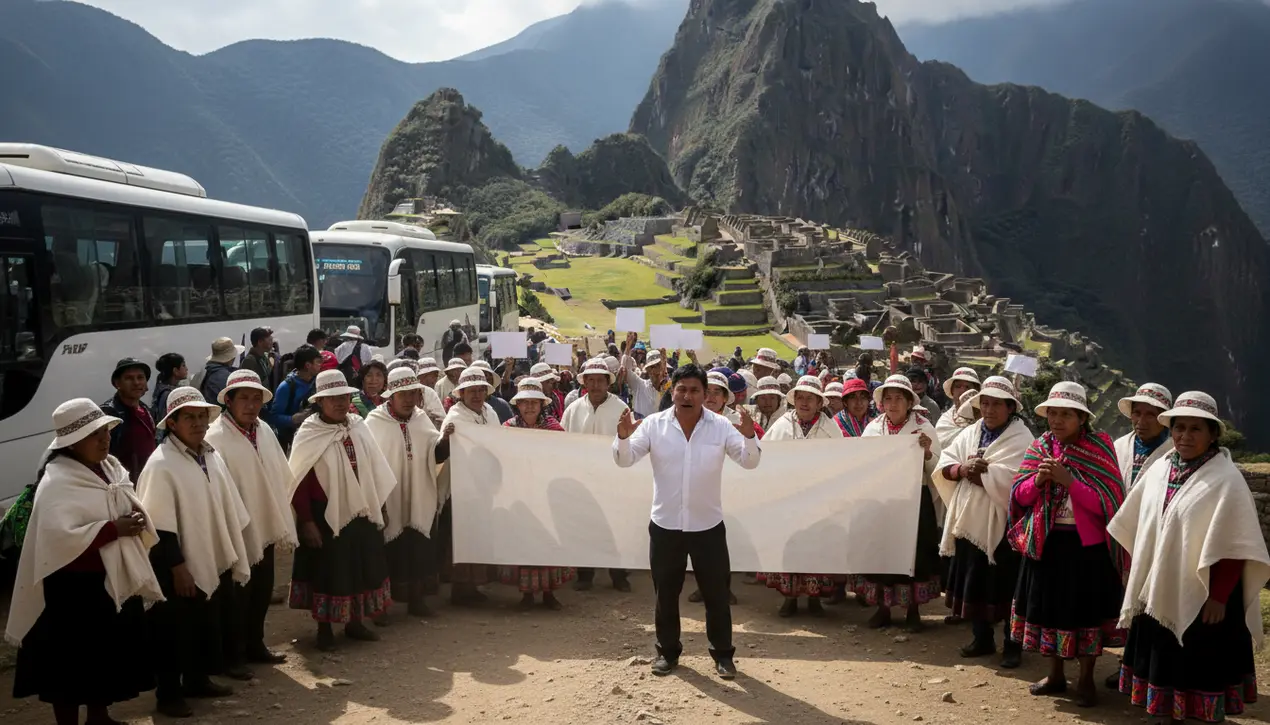
Othertravel & tourismDestinations and Guides
Tourist Bus Protests at Peru's Machu Picchu
EM
Emma Wilson
15 hours ago7 min read1 comments
The ancient stone terraces of Machu Picchu, a site that has withstood centuries of Incan history and Spanish conquest, now echo with the modern sounds of dissent as protests erupt over the tourist coaches that ferry visitors up its sacred slopes. This isn't just a minor logistical dispute; it's a profound clash between the preservation of a world heritage treasure and the economic lifeline it provides to a nation still grappling with the economic aftershocks of the pandemic and political instability.The coaches, a necessary evil for many of the 1. 5 million annual visitors who cannot manage the arduous climb, have become a flashpoint for local communities who feel sidelined from the economic benefits of the tourism boom that their ancestral land generates.The scene is tense and emotional; you can feel the frustration in the thin Andean air as protestors, many of whom are from the surrounding Cusco region, block access routes, their placards and chants demanding a more equitable share of the revenue and greater local control over the operations that dictate their livelihoods. This conflict has deep roots, stretching back to the very designation of Machu Picchu as a UNESCO World Heritage Site in 1983, a status that brought global acclaim but also intensified the tension between global conservation mandates and local needs.The Peruvian Ministry of Culture and the Decentralized Directorate of Culture in Cusco are caught in an impossible bind, tasked with protecting the fragile archaeological integrity of the citadel from the erosive effects of overtourism while simultaneously ensuring that the gateway town of Aguas Calientes doesn't become an economic ghost town. Experts on sustainable tourism are watching closely, warning that this protest is a microcosm of a global crisis playing out from Venice to Bali, where the very allure of a destination is threatened by the infrastructure built to support it.The immediate consequence is clear: cancelled tours, disappointed travelers, and a significant dent in the vital tourism revenue that Peru relies upon. But the long-term implications are far graver.If a sustainable, community-centric model isn't urgently negotiated—one that perhaps includes profit-sharing, stricter visitor caps, or investment in alternative local industries—these protests could escalate, potentially leading to more permanent disruptions that damage Peru's international reputation and, ultimately, the preservation of the iconic site itself. The stones of Machu Picchu have witnessed empires rise and fall; now, they are the silent witnesses to a 21st-century battle over its soul.
#Machu Picchu
#Peru
#tourist buses
#protests
#UNESCO World Heritage
#travel disruption
#featured
Stay Informed. Act Smarter.
Get weekly highlights, major headlines, and expert insights — then put your knowledge to work in our live prediction markets.
Comments
Loading comments...
© 2025 Outpoll Service LTD. All rights reserved.